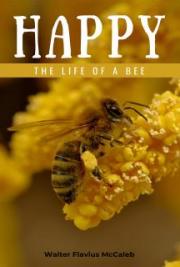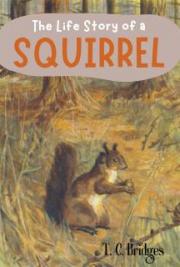WILDLIFE (GENERAL)
The bald eagle has been America's national symbol since1782.
The Chippewa National Forest located in Northern Minnesota is a refuge for the bald eagle and other bird species.
In 1963 the bald eagle population dwindled to a few hundred nesting pairs.
Historically, bald eagles had to endure poisoning, trapping (as target and non-target animals), shooting, demonization, DDT (dangerous pesticide), and habitat destruction. DDT was a decimator of bald eagles and peregrine falcons. From 1917 to 1952 there was a bounty on eagles in Alaska.
Unlike the Migratory Bird Treaty Act of 1913 which helped to protect migratory bird species, The Bald and Golden Eagle Protection Act of 1940 forbade (except under strict conditions) the acquisition of, ownership (possession), and the sale, trade or exchanging of the bald eagle. This resulted in a dwindling of illegal bald eagle hunting.
The bald eagles" favourite food source is fish, but this bird also eats other birds, beached whales, carcasses, road kill, and sometimes steals food from other birds.
The bald eagle is the master of the sky in its domain. It's a tough bird that can steal food from other tough bird species.
Native Americans have always revered the bald eagle. Today, many North Americans feel likewise. The presence of the bald eagle and the California condor are miracles.
These two incredible bird species, especially the California condor were in serious trouble.
When Europeans first arrived in North America there were large numbers of bald eagles along the shores of the Atlantic and Pacific oceans reaching Alaska on the west coast.
Furthermore, eagles controlled the skies in their respected areas and many rivers and lakes. There may have been a million bald eagles at the time.
On June 28, 2007 Secretary of the Interior Dirk Kempthorne announced that the bald eagle had been officially removed from the endangered species list.
The art of falconry began in the Middle East 3000 years ago. Peregrine falcons were saved from the brink of extinction.
It took 3 decades of hard work to do the job.
Many ranchers and farmers shoot or trap raptors (birds of prey). Raptors hunt what trappers, hunters, and fishermen hunt; birds, rabbits, fish, and small animals.
The Philippine eagle has been hunted mercilessly.
The California condor by human standards is ugly and menacing-looking. It's also a scavenger.
There are 6 species of vultures who observe the African savannah. The lappet-faced and white-headed vultures get first pickings of a carcass. The two species are powerful enough to split open a carcass.
Next in line are the griffin and white-backed vultures. They have long specially designed necks that allow them to sink their heads deep into a carcass.
Vulture populations in the Middle East and Europe have drastically declined.
Today, the budgerigars are the most common bird species.
Our planet's highest mountains are in Asia and South America. Wildlife in mountain areas include Barbary sheep, mountain lions, sun bears, giant pandas, red pandas, snow leopards, bongos, deer, elk, grizzly bears, bighorn sheep, mountain goats, wolves, bird species (predator and prey). In general, mountain prey is better protected than lowland prey.
But human encroachment has reached our tallest mountains too. Pollution knows no boundaries.
Wilderness safaris (ecotourism) allow tourists to enter exotic wildlife areas (sometimes densely populated) and take pictures of individuals or groups.
A portion of the proceeds from wilderness safaris can be used for conservation and education. To see wildlife in its natural habitat is a good way to remind and educate people about wildlife conservation.
Everyone can't afford to go to Africa, Asia, or some other far off lands.
Zoos have aided in the re-introduction of bison, Arabian Oryx, and red wolf. Zoos can play a role in protecting individuals and populations of critically endangered species.
The green tree snake, a horrible pest in Guam, is a native of the coast of Australia, Papua New Guinea, and islands in Melanesia.
Green tree snakes have wreaked havoc on Guam's birds, and also have preyed on its lizards, bats, and tiny rodents. Nine species of Guam's bird species have been exterminated by the brown tree snake and several others are in trouble.
Brown tree snakes were most likely military stowaways at the end of the Second World War. By the early 1950's their presence was already known.
The closest U.S. state to the Territory of Guam is Hawaii. Every measure should be taken to rid Guam of this super pest and to prevent its leap-frogging into Hawaii, or any other island or country for that matter.
People in Guam have been bitten by the brown tree snake. In fact one elderly man was bitten in the scrotum while he was seated in a toilet seat. Ouch!
There are more than 400 species of sharks. They have large brains. Most shark bits are either defensive, territorial or are mistakes (humans swim like injured fish). In addition, surfers on boards look like large fish.
Dozens of humans are killed by sharks annually, many more are bitten. Sharks have been hunted for their flesh, medicine, teeth, cartilage, liver oil, and to satisfy the shark fin soup industry. Shark fin soup which is in high demand in Asia is obtained by catching a shark, slicing off its fins then tossing the body back into the water. Shark meat is generally of little or no value on the market. However shark fin soup can run up to 100 dollars in a restaurant.
Shark populations, especially in Asian waters, are being hunted for their fins in an unsustainable manner. Millions of sharks are killed annually; equalling over 1 million tons of shark flesh.
Sharks have been demonized throughout history. It's easy to understand when you picture an image of a shark in your head. Most are scary looking, cold, terrifying, and have incredible razor sharp teeth. They appear monstrous and laconic when attacking prey.
Sharks are a keystone species. They keep prey numbers in check and large sharks help to control small shark populations.
Unsustainable shark hunting is aggravated by the sharks" slow reproduction rate. The Great White Shark is an "apex predator" in the ocean. Only orca pods can threaten this powerful shark.
By-catch, demonization, pollution, habitat destruction (bottom trawlers, overfishing), and reduced prey populations are problems for the Great White Shark.
In 1991 South Africa passed a law for the protection of Great White Sharks.
The Shark Finning Prohibition Act makes it unlawful for any foreign oceanic craft to dump or unload shark fins into a U.S. port, without unloading the rest of the sharks" bodies.
The North American bison has always been an important part of Native American culture (in particular on the plains). The bison provided Native Americans with "optimum nutrition", and the body was stripped down, literally to the bone and teeth. Nothing was wasted. Hides were used as clothing and for tee pees.
In addition, the bison was a part of Native American religion and folklore. Hunting was important for males, the family, and the tribe.
The U.S. Government understood that by eradicating the bison, Native Americans would be doomed to starvation, transfer, and reservations.
Reservation life for Native Americans was horrible to say the least. The food handouts were of dog food quality and high in fat; usually consisting of low-grade fatty strips of bacon or other high-fat pork products.
Diabetes, high blood pressure, high cholesterol, higher body fat composition (for both sexes), cultural and religious annihilation, humiliation, loss of bison, high unemployment, horrible alcoholism, high mortality rates, and a general feeling of apathy, anger, mistrust, fear, and depression have been common amongst many Native Americans.
Turtles have been around for nearly 200 million years. There are close to 270 turtle species.
Giant turtles are referred to as tortoises. Their smaller relatives are called terrapins.
The leatherback turtle is the largest sea turtle. Unfortunately, turtle populations around the world are declining.
Turtles used for food, Chinese medicine, and the problems of pollution, habitat destruction, by-catch, pet trade, and accidents are destroying many turtle species. Leatherback blubber is used by the cosmetic industry. Plastic bags (cause choking), fishing gear, and fishing nets are also dangerous problems.
Turtle watching tours are good for conservation. In addition, turtle breeding can help in the conservation effort. Nesting success for turtles is very important for their survival. Unfortunately, people take countless turtle eggs to sell at the market.
In 2001, the Taiwanese Authorities seized an illegal shipment of 10 thousand turtles.
Turtles in general are slow and do not fight back when attacked or when captured by humans.
Hawksbill turtles are overhunted for their incredible shells. Leatherback baby turtles are a food delight for birds of prey, crabs, bears, coyotes, raccoons, snakes, and predatory fish.
Frogs have been on this planet for more than 250 million years, except in Antarctica. Frogs are a keystone species; very important for their habitat.
Over 30 species of frogs are extinct. In addition 25 frog species are in danger of becoming extinct. Habitat loss or alteration, pollution, and the introduction of non-native species harm turtle populations.
The frog pet and vivisection trade are compounding the population decline problems.
Frogs eat many insects that we consider pests. Frogs can be found living in or close to ponds, lakes, rivers, muddy grounds, wetlands, grasslands, in trees, or deserts.
Grazing livestock destroy frog habitat by trampling the ground and eating much of the plant life.
Pesticides, fertilizers, acid rain, and other pollutants cause countless frog deformities.
Of the approximately 1000 species of bats 250, including the Mexican long-nosed bats, are endangered. No other known mammal has the ability to fly. Bats have many enemies including canids, felids, raccoons, snakes, and humans (pollution, pesticides, habitat destruction, and bat killings).
Bats are classified as megabats (large type, herbivores) and microbats (small type, carnivores). There are no bats in
Antarctica. In general, bats use echolocation to zoom-in on prey (primarily insects).
Bats can be protected in abandoned caves and mines by building special barriers for people and NO ENTRY signs.
As soon as the early American settlers began to chop down trees in large numbers in order to clear the land for agriculture and settlements predators in the area became vermin; especially wolves, bears, coyotes, birds, and big cats.
Coyotes are one of the most adaptable and opportunistic of animals. Coyotes took advantage of the new food sources imported into the country by the settlers. The panther however, didn't fare as well. Its food source shrunk with the expansion of human settlements. They coyote's size and diet permitted it to eat whatever it could find.
By the 19th century the American panther population had been devastated. Sightings by settlers became fewer and far between. The last confirmed killing of an eastern panther was in Vermont in 1881.
As a direct result of dwindling wildlife, the eastern panther was forced to eat livestock. The panther, wolf, and coyote have been demonized like no other species in North America. However, the eastern panther played a significant role in Native American culture.
Habitat destruction, hunting, pollution, trapping, wildlifepopulation reduction, demonization, fencing, the railroad and human expansion have caused the reduction of predator populations.
In North America, Victoria Island, British Columbia is the place where a person is most likely to be attacked by a panther.
Depending on what part of North America you live in the eastern panther or panther (east), mountain lion (west), or cougar (mountain) may be used to describe the biggest cat in the region.
Theodore Roosevelt, the 26th President of the United States, hated cougars with a passion. There's much love for animals in this world, however, there's also too much hatred of animals in this world.
INFORMATION BOOTH:
Note: Sites that are listed without a website address can be found by typing in the words shown on the Yahoo or Google search engines. In addition, Wikipedia is a good source for general information on a wide variety of subjects.
If you decide to design a web page for an animal related issue you can use the following recommended categories on your Home Page:
Home | Campaigns & Issues | Newsletter | Get Involved | Events | About Us | Blog | Contact | Links |
ANIMAL, ENVIRONMENTAL, AND RELATED SITES:
Note: Some words are clumped together with no Spacing. Type exactly what you see.
DOGS:
www.actionforgreyhounds.co.uk/ Action for Greyhounds (UK) www.adbadog.com/p_home.asp American Dog Breeders Association www.allaboutdogsandcats.com/index.html
www.all-about-great-danes.com Great Danes
www.alllabs.com All Labs
American Association of Zookeepers
American Bouvier des Flandres Club
www.americanboxerclub.org American Boxer Club
American Dog breeders Association
American Dog Owners Association
American Dog Trainers Network
American German shepherd Rescue Association
American Kennel Club (Best site/institution to find information
about dog breeds, registration, pedigree information, etc.) American Rottweiler Club
AnimalRightsCanada.com Contains Animal Rights Sites in Canada
Animal Shelters-Image Results
AnimalWorld.com (Much Information)
www.apdt.com The Association of Pet Dog Trainers
www.arba.org American Rare Breeds Association
www.ardainc.org American Rescue Dog Association
www.assistancedogsinternational.org Assistance Dogs International
Association of Pet Dog Owners
Association of Pet Dog Trainers
www.asca.org Australian Shepherd Club of America
www.ava.org/Taildock.htm Tail Docking
www.banpoundseizure.org Ban Pound Seizure
www.barkingbuddies.com Barking Buddies
www.bearsearchandrescue.org The Bear Search and Rescue Foundation (Don’t be Fooled by the Name, this is a Rescue Dog Site)
www.bleedingeyeballs.com/basenjiart/egyptiandogs.htm Other
Ancient Egyptian Dogs
www.bulgariadogs.webs.com Bulgarian Society for Animal
Protection and Preservation
www.bulldoginformation.com/war-dogs.html War Dogs, Military
Service Dogs, Battle Dogs
Canadian Kennel Club
www.canine-academy.com Canine Academy (Austin, Texas)
www.caninecompanions.org Canine Companions for Independence
Canine Good Citizen Award
CanineInformationLibrary.com
www.canismajor.com Canis Major Dog Site (Breed Information for
Owners)
www.carda.bc.ca Canadian Avalanche Rescue Dogs Association
clubs.akc.org/NBC/usdas_beagle_brigade.htm USDA's Beagle
Brigade
www.dawnrestdogs.org Dawnrest Dogs Family & Strain
Delta Society
digital.library.mcgill.ca/nwc/history/09.htm The Fur Traders
www.dogchannel.com/dog-breeds/all_landing.aspx Dogs Info www.dccfund.org Dog and Cat Cancer Fund
dogcustomer.com
Dog Fancy (Magazine) www.workingdog.eu/dog_fighting_en.html Dog Fighting Info www.doggiesparadise.com/behavior.shtml CANINE BEHAVIOR
www.doggonesafe.com Dog Bite Prevention Information www.dogmeat.org Petition Against Eating Dog Meat www.dogobedienceadvice.com/
Which Dogs are Most Aggressive
Dog Owner's Guide: Canine Behaviour
www.dogplay.com/index.html Dog Play
Dogsabuse.com
Dogs for Kids (Magazine) www.dogsinthenews.com Dogs in the News Dogs in Review (Magazine)
dogs.lovetoknow.com/wiki/Dog_History Extensive Site www.dogstardaily.com Dog Star Daily
Dog World (Magazine)
Dog Writers Association of America
Doni's Dogs.com
www.ethiopianwolf.org Ethiopian Wolf Conservation Programme
www.fema.gov/emergency/usr FEMA Urban Search and Rescue
(Humans and Dogs are Employed)
Gaines TWT (Touring with Towser): Information pertaining to hotels and motels that allow canine guests.
Gas Chamber in Shelters
German Shepherd Dog Club of America
www.gdca.org Great Dane Club of America www.germanshepherddog.com United Schutzhund Clubs of America- For the German Shepherd Dog
www.meetgina.ca/ Greyhounds in Need of Adoption (GINA) www.gra-america.or Greyhound Racing Association of America. www.greatdaneclub.danemoor.com The Great Dane Club
The Great Dane Reporter greatwardifferent.com/Great_War/Animals_at_War/... Dogs at War Greyhound Action
www.greyhoundadventures.org/ Greyhound Adventures and
www.greyhounds.org Greyhound Protection League www.helpsleddogs.org/faq.htm Iditarod Race Facts www.iditarod.com Official Site of the Iditarod International Sled Dog Racing Association kenyonsatdogcreek.com/whyagd.html Great Dane Site www.k9obedience.co.uk/dogcare/rescue/fightingdogs.html www.k9web.com/dog-faqs/behavior.html CANINE BEHAVIOR National Association of Dog Obedience Instruction National Association of Search and Rescue Dogs
National Disaster Search Dog Foundation
National Stock Dog Registry
North American Flyball Association North American Working Dog Association www.nsgsdc.com/breedhistory.shtml Nova Scotia German shepherd Club
On the Road Again with Man's Best Friend: (Good Directory)
NYC Anti-Animal Fighting Campaign
Pit Bull Rescue Central
Pitbullsontheweb.com
www.projectpetslimdown.com Project Pet Slim Down www.psychdog.org Psychiatric Service Dog Society www.puppyfinder.com
PuppyProfits.com DOG FIGHTING
www.sharethelovenc.org Share the Love Pet Food Bank
www.stopdogfighting.net/
www.stoppuppymills.org Puppy Mills
www.stoppuppymills.org/inside_a_puppy_mill.html Puppy Mills
www.texastaskforce1.org Texas Task Force 1 (Human and Canine Rescue Team Members)
Therapy Dogs International
www.tomregan-animalrights.com/archive/vividogs.html Dog
Vivisection Pictures www.tufts.edu/vet/behavior/canine.shtml CANINE BEHAVIOR United Kennel Club
U.S.Wardogs.org www.uswardogs.or







